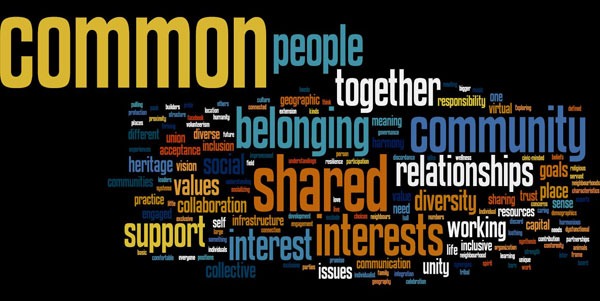
Community development is a process where community members come together to take collective action and generate solutions to common problems. Community wellbeing (economic, social, environmental and cultural) often evolves from this type of collective action being taken at a grassroots level. Community development ranges from small initiatives within a small group to large initiatives that involve the broader community.
Effective community development should be:
- a long-term endeavour
- well-planned
- inclusive and equitable
- holistic and integrated into the bigger picture
- initiated and supported by community members
- of benefit to the community
- grounded in experience that leads to best practices
Community development is a grassroots process by which communities:
- become more responsible
- organize and plan together
- develop healthy lifestyle options
- empower themselves
- reduce poverty and suffering
- create employment and economic opportunities
- achieve social, economic, cultural and environmental goals
Community development seeks to improve quality of life. Effective community development results in mutual benefit and shared responsibility among community members. Such development recognizes:
- the connection between social, cultural, environmental and economic matters
- the diversity of interests within a community
- its relationship to building capacity
Community development helps to build community capacity in order to address issues and take advantage of opportunities, find common ground and balance competing interests. It doesn’t just happen – capacity building requires both a conscious and a conscientious effort to do something (or many things) to improve the community.
Community
Often when we think of community, we think in geographic terms. Our community is the city, town or village where we live. When community is defined through physical location, it has precise boundaries that are readily understood and accepted by others. Defining communities in terms of geography, however, is only one way of looking at them. Communities can also be defined by common cultural heritage, language, and beliefs or shared interests. These are sometimes called communities of interest. Even when community does refer to a geographic location, it doesn’t always include everyone within the area. For example, many Aboriginal communities are part of a larger non-Aboriginal geography. In larger urban centres, communities are often defined in terms of particular neighbourhoods.
Most of us belong to more than one community, whether we’re aware of it or not. For example, an individual can be part of a neighbourhood community, a religious community and a community of shared interests all at the same time. Relationships, whether with people or the land, define a community for each individual.
Development
The term “development” often carries an assumption of growth and expansion. During the industrial era, development was strongly connected to increased speed, volume and size. However, many people are currently questioning the concept of growth for numerous reasons – a realization that more isn’t always better, or an increasing respect for reducing outside dependencies and lowering levels of consumerism. So while the term “development” may not always mean growth, it always imply change.
The community development process takes charge of the conditions and factors that influence a community and changes the quality of life of its members. Community development is a tool for managing change but it is not:
- a quick fix or a short-term response to a specific issue within a community;
- a process that seeks to exclude community members from participating; or
- an initiative that occurs in isolation from other related community activities.
Community development is about community building as such, where the process is as important as the results. One of the primary challenges of community development is to balance the need for long-term solutions with the day-to-day realities that require immediate decision-making and short-term action.
[show_avatar email=11 align=left user_link=last_post show_name=true avatar_size=63]